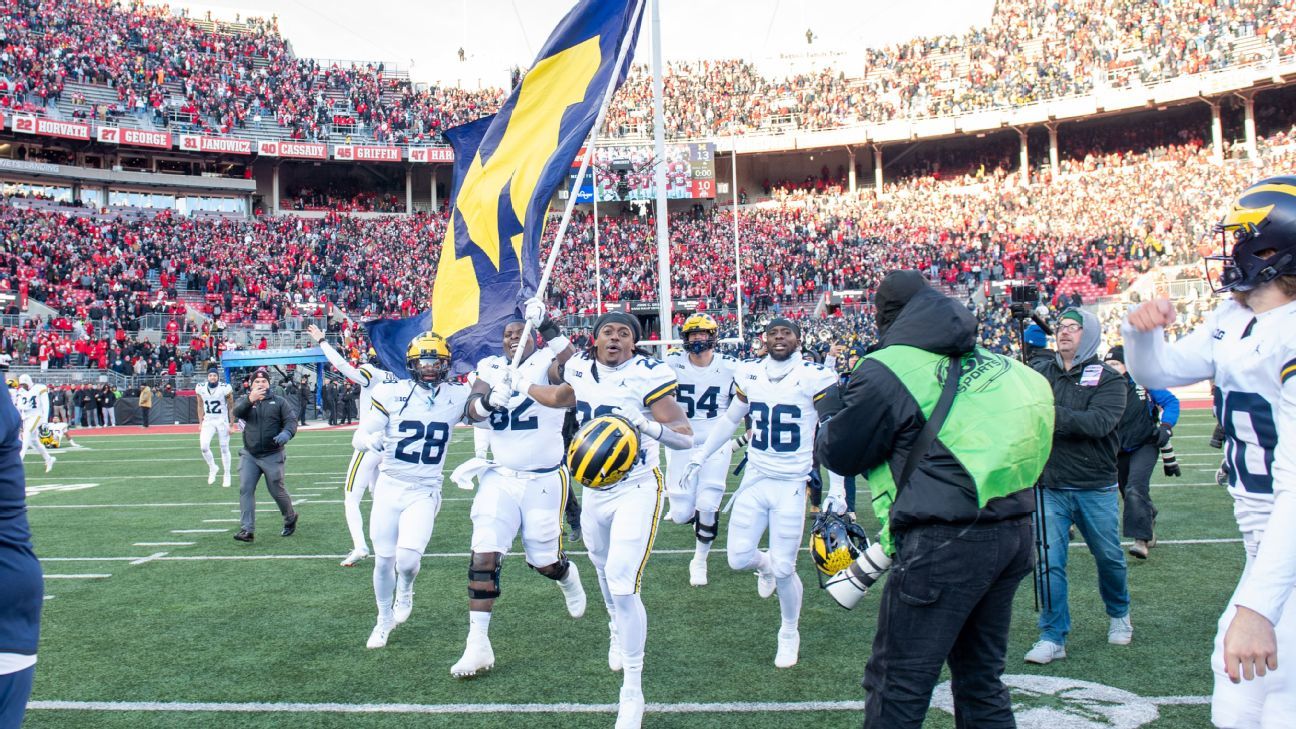Does flag planting have a place in college football?

Flag-Planting: The New Frontier in College Football Rivalries
A Battleground of Pride and Passion
The celebration that started it all: Michigan's post-victory act of planting their Block M flag at Ohio Stadium ignited a chain of events that transformed college football rivalries into a heated battleground.
It was more than just a symbolic gesture; it was a declaration of dominance and a challenge to their archrivals.
The Tribal Nature of College Football
Unlike professional sports, college football teams remain deeply rooted in their regions. This creates a sense of identity and belonging that intensifies rivalries beyond the game field.
As Dr. Francesco Dandekar explains, "In some ways, [a rivalry] kind of morphs into an identity thing where part of being a member of one team is a desire to beat a specific team or have distaste for that team."
The Heat of the Moment
After a grueling football game, players and emotions run high. Dandekar explains that, in such situations, regulating behavior becomes difficult for our brains.
Respect is key, and when it's seemingly shattered by a flag-planting celebration, the likelihood of retaliation increases.
A Historical Tradition and Its Revival
Flag-planting in college football isn't a recent phenomenon. Researchers have traced it back at least two decades.
Baker Mayfield took flag-planting to new heights in 2017 when he famously conquered Ohio Stadium's Block O with an Oklahoma Sooners flag. His actions sparked a whirlwind of backlash and an ensuing apology.
Sportsmanship in Crisis
For MAC commissioner Jon Steinbrecher, flag-planting is just one symptom of a larger crisis in college sportsmanship.
He penned a letter to the NCAA expressing his concerns about the "lack of decorum exhibited by coaches, student-athletes, and fans." He urged the NCAA to set higher standards and hold everyone accountable for maintaining them.
Financial Incentives and the Changing Landscape
In the age of name, image, and likeness, athletes have a financial incentive to draw attention to themselves.
Steinbrecher believes that, "It's about saying this is what the standard is, and we're going to live to that standard, and we're going to hold ourselves accountable to that standard. And when we don't live up to that, we'll address it."
Proposed Laws and Extreme Solutions
In Ohio, state representative Josh Williams introduced a bill that would classify flag-planting at Ohio Stadium as a fifth-degree felony.
NCAA president Charlie Baker acknowledged the issue, stating that the NCAA plans to address it. Whether this leads to meaningful change remains to be seen.
Coaches Weigh In and Legal Implications
Most coaches condemn flag-planting and retaliation. However, some have downplayed the incidents as the byproduct of emotional games.
Legal implications vary by state. While flag-planting may be a felony in Ohio, Tennessee could potentially celebrate a victory at the Horseshoe in the same manner.
Mock Rollin' Dice: A Possible Solution?
Atlanta Hawks guard Trae Young offered a unique solution to the flag-planting debate when he mocked rolling dice on the Knicks' logo after a win.
New York Knicks star Jalen Brunson suggested that the solution is simple: "We should win the game if we don't want him to do that."